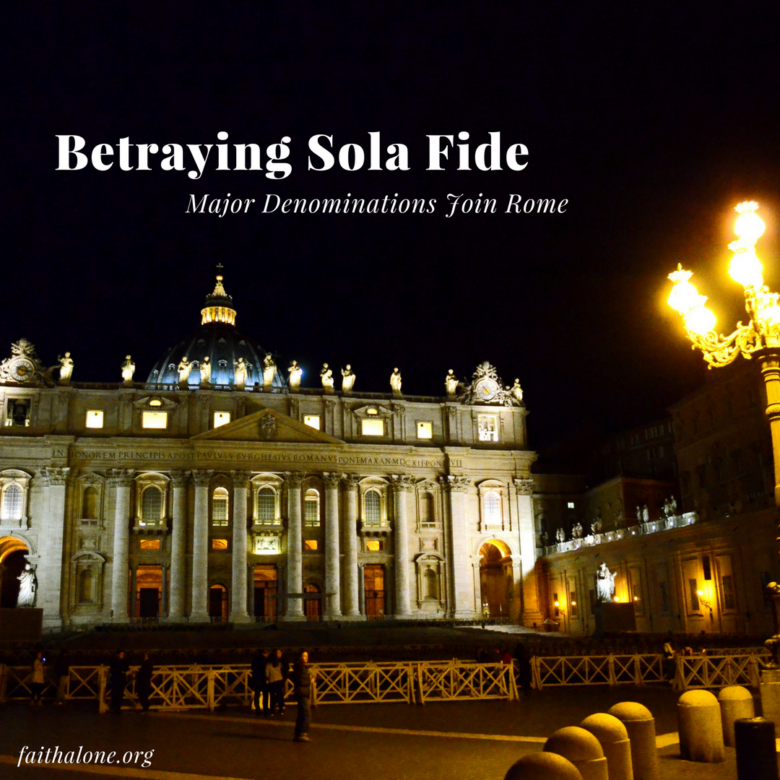Does anyone believe in sola fide anymore?
This week the World Communion of Reformed Churches signed the Joint Declaration on the Doctrine of Justification co-authored by the Lutheran World Federation and the Roman Catholic Church in 1999 (see here). The document was already formally endorsed by the World Methodist Council. And according to the article, the Anglican Communion is expected to sign later this year.
Basically, all the mainline churches are on-board. This is bad news, because that document effectively adopts a Roman Catholic view of justification. Why is that bad? Gene Veith, a dissenting Lutheran, explains the problem:
“The accord confuses justification and sanctification, accepting the Roman Catholic understanding that since faith produces good works, we end up being saved by our good works after all” (see here).
Mainline churches in Europe and America are officially adopting a message of works salvation.
The numbers of Protestants and Evangelicals who believe that salvation is by faith, apart from works, is rapidly decreasing.
That marks a great opportunity for Free Grace Theology.We are virtually alone in affirming that believing in Jesus is the only condition of eternal salvation.
Some people have objected that this is only true of liberal, and not true of conservative, Reformed, Lutheran, Anglican, and Methodist theologians.
I am not so sure.
As readers of this blog know all too well, conservatives are often just as confused as Roman Catholics in mixing faith and works. John MacArthur is well known for teaching this (see here). That also appears to be true of people like John Piper (see here and here). And it has long been a problem in conservative Reformed seminaries like Westminster (see here).
Thankfully, the Lutheran Church Missouri Synod, a conservative denomination, came out against the Declaration for denying sola fide. Unfortunately, their statement to that effect was not as clear as it could have been—speaking of “trust” instead of “belief”:
“What is that truth? God loved the world so much that He sent His Son, Jesus Christ, to live a perfect life in our place and to die for our sins. God declares us to be totally righteous and completely forgiven because of the life, death and resurrection of Jesus Christ. God gives us eternal life as a free gift through trust in Christ alone.
“The Roman Catholic Church teaches that something more than trust in Christ is necessary for us to be saved. It teaches that we are able to merit, through our works, eternal life for ourselves and others. We believe this teaching obscures the work of Jesus Christ and clouds the central message of the Bible” (emphasis added; see here).
I don’t like using the word “trust” as a synonym for “believe” because too many people think of “trust” in terms of behavior (see here and here). Better to just stick to Jesus’ own language of believing in Him (John 3:15-18, 36). So let me state the objection more clearly than my Missouri Synod friends.
God gives us eternal life as a free gift “through believing in Christ alone.” And the Roman Catholic Church—along with Reformed, Lutheran, Methodist, Waldensian, and Anglican Churches—teaches that “something more than belief in Christ is necessary for us to be saved.” That denies the gospel. And someone who has only ever believed that message is not born again.
Is the Free Grace movement all alone, in teaching faith alone?


